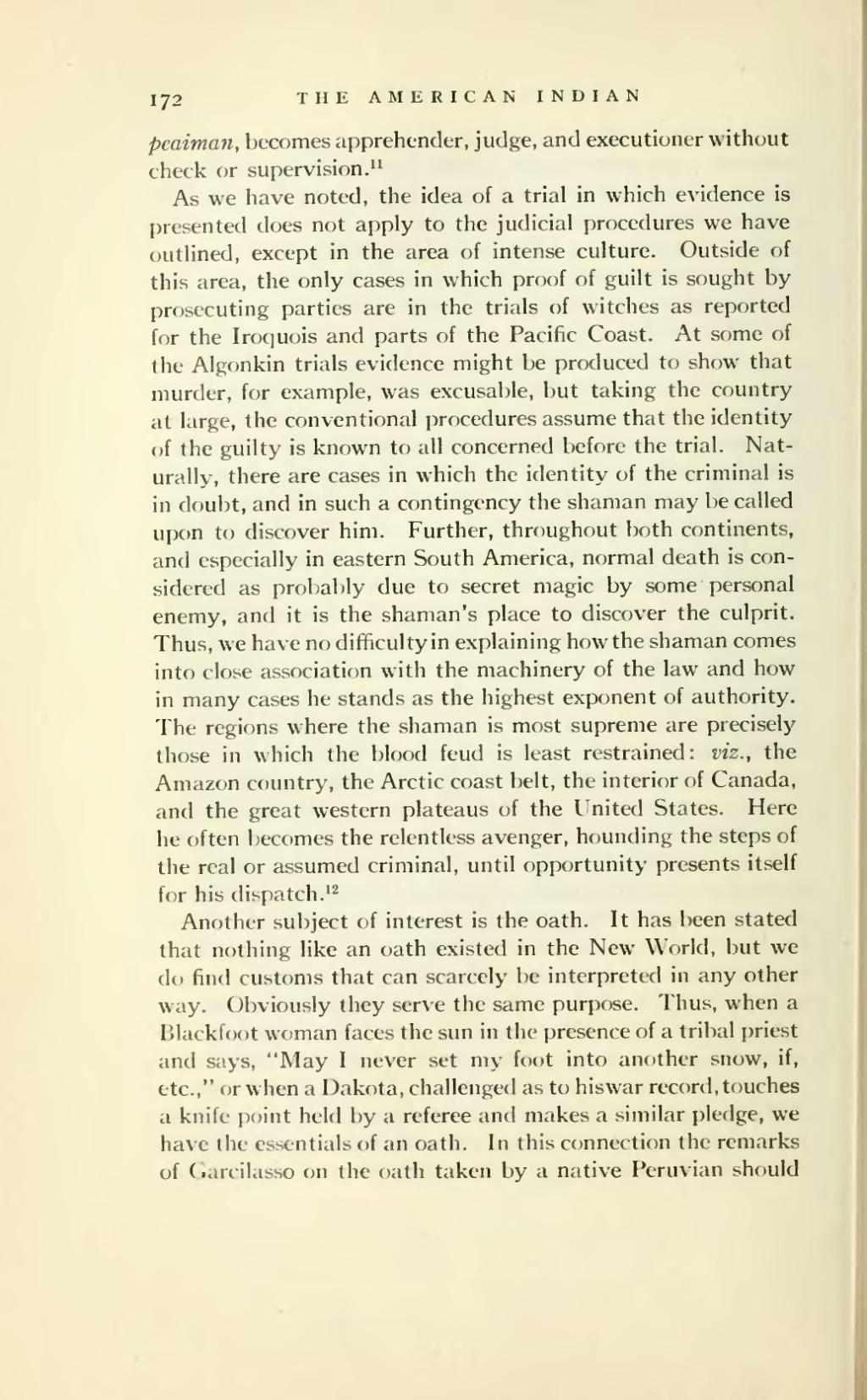peaiman, becomes apprehender, judge, and executioner without check or supervision.[1]
As we have noted, the idea of a trial in which evidence is presented does not apply to the judicial procedures we have outlined, except in the area of intense culture. Outside of this area, the only cases in which proof of guilt is sought by prosecuting parties are in the trials of witches as reported for the Iroquois and parts of the Pacific Coast. At some of the Algonkin trials evidence might be produced to show that murder, for example, was excusable, but taking the country at large, the conventional procedures assume that the identity of the guilty is known to all concerned before the trial. Naturally, there are cases in which the identity of the criminal is in doubt, and in such a contingency the shaman may be called upon to discover him. Further, throughout both continents, and especially in eastern South America, normal death is considered as probably due to secret magic by some personal enemy, and it is the shaman's place to discover the culprit. Thus, we have no difficulty in explaining how the shaman comes into close association with the machinery of the law and how in many cases he stands as the highest exponent of authority. The regions where the shaman is most supreme are precisely those in which the blood feud is least restrained: viz., the Amazon country, the Arctic coast belt, the interior of Canada, and the great western plateaus of the United States. Here he often becomes the relentless avenger, hounding the steps of the real or assumed criminal, until opportunity presents itself for his dispatch.[2]
Another subject of interest is the oath. It has been stated that nothing like an oath existed in the New World, but we do find customs that can scarcely be interpreted in any other way. Obviously they serve the same purpose. Thus, when a Blackfoot woman faces the sun in the presence of a tribal priest and says, "May I never set my foot into another snow, if, etc.," or when a Dakota, challenged as to his war record, touches a knife point held by a referee and makes a similar pledge, we have the essentials of an oath. In this connection the remarks of Garcilasso on the oath taken by a native Peruvian should
